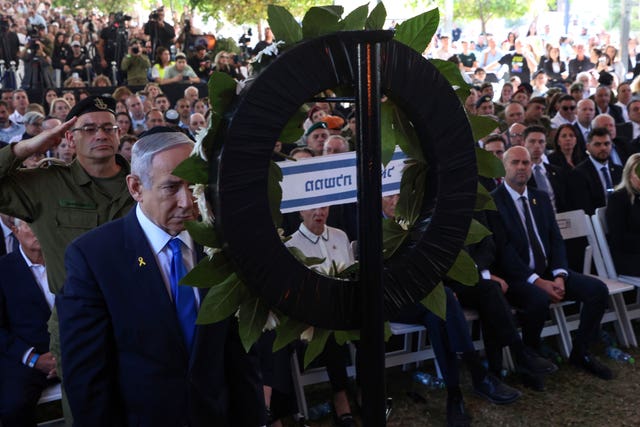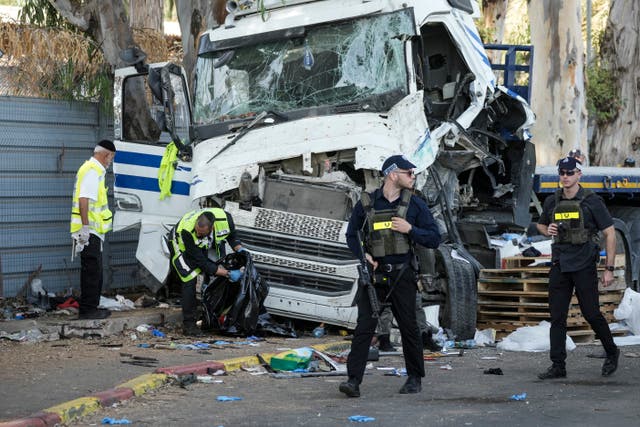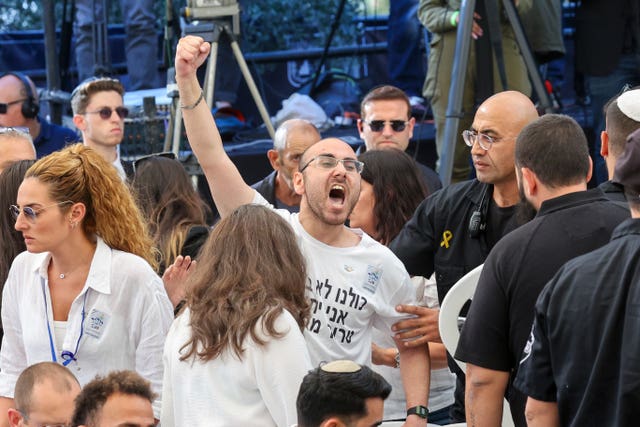Egypt proposes two-day Gaza ceasefire and release of four hostages
Egypt has been a key mediator along with Qatar and the United States.

Egypt’s president has said his country has proposed a two-day ceasefire between Israel and Hamas during which four hostages held in Gaza would be freed.
President Abdel Fattah el-Sissi, speaking in Cairo, said the proposal also includes the release of some Palestinian prisoners and the delivery of humanitarian aid to the besieged Gaza Strip.
Egypt has been a key mediator along with Qatar and the United States.
This is the first time Egypt’s president has publicly proposed such a plan. There has been no immediate response from Israel or Hamas.

Talks in pursuit of a longer, phased ceasefire have repeatedly stalled. Hamas wants Israeli forces out of Gaza as a precondition, but Israeli Prime Minister Benjamin Netanyahu has said they will remain until Israel has destroyed Hamas.
There has not been a ceasefire since November’s weeklong pause in fighting and hostage and prisoner exchange.
Meanwhile, Israel’s Mossad chief was travelling to Doha on Sunday for talks with the prime minister of Qatar and the CIA chief.
The announcement came after Palestinian officials said on Sunday that Israeli strikes on northern Gaza killed at least 33 people, mostly women and children. Israel said it targeted militants.
In a separate development, a truck rammed into a bus stop near Tel Aviv, killing one person and wounding more than 30.

During a government memorial on Sunday for the Hebrew anniversary of the October 7 Hamas attack on southern Israel, Israeli Defence Minister Yoav Gallant said that “not every goal can be achieved through military operations”.
He added that “painful compromises will be required” to return the hostages.
Protesters disrupted a speech by Mr Netanyahu at the nationally broadcast ceremony.

Many Israelis blame Mr Netanyahu for the failures that led to the attack and hold him responsible for not yet bringing home the remaining hostages.
Egypt’s proposal came a day after Israeli strikes on Iran in response to Iran’s ballistic missile attack earlier this month.
Iran’s supreme leader said the attack “should not be exaggerated nor downplayed”, while stopping short of calling for retaliation. It was Israel’s first open attack on its arch enemy.
That exchange of fire has raised fears of an all-out regional war pitting Israel and the United States against Iran and its militant proxies, which include Hamas and the Hezbollah militant group in Lebanon, where Israel launched a ground invasion earlier this month after nearly a year of lower-level conflict sparked by the war in Gaza.





